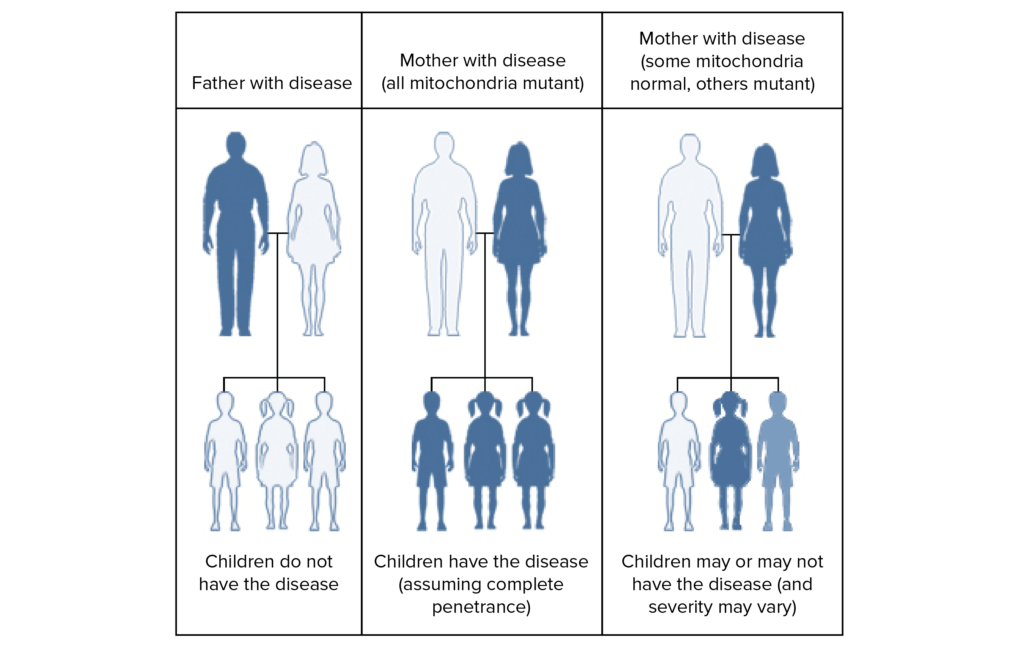Mitochondria
Mitochondrial gene mutations and human diseases
Dr.V.Malathi
As mitochondrial genes are inherited only from the mother, mutation in a mitochondrial gene, is passed from a mother to all of her children; sons will not pass it on, but daughters will pass it on to all of their children, and so on.
Mitochondrial DNA mutations are often deletions or point mutations. In general 1 in 400 person has a maternally inherited pathogenic mitochondrial DNA mutation . In individual families ,it is difficult to distinguish whether mitochondrial inheritance is from autosomal dominant or from X-linked inheritance, but however , the sex of the transmitting and non transmitting parents can suggest a mitochondrial basis
A nuclear gene, called DNA polymerase gamma ( POL G) encodes the DNA polymerase responsible for replicating the mitochondrial genome. The POLG protein consists of two domains: a catalytic domain that exhibits polymerase activity, and an exonuclease domain that is involved in the recognition and removal of DNA base pair mismatches that occur during DNA replication. A recent study suggests that mitochondria may have a nucleotide imbalance that leads to decreased POLG fidelity and higher mitochondrial DNA mutation rates .
Mutations in mitochondrial DNA can lead to human genetic disorders.
 Image from “Mitochondrial,” by the National Institutes of Health (public domain).
Image from “Mitochondrial,” by the National Institutes of Health (public domain).


Feedback/Errata